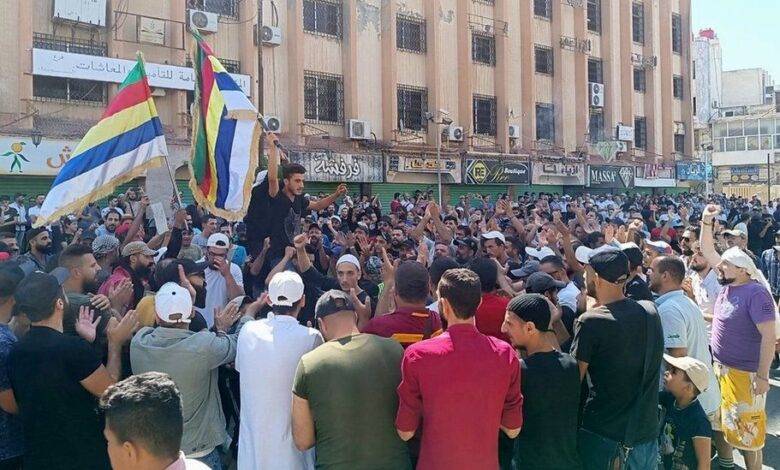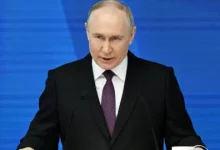
Protests against Syria’s government are intensifying in the country’s south, amid widespread anger over its decision to cut fuel subsidies when millions of people are already struggling to afford basic goods because of hyperinflation.
A large banner showing President Bashar al-Assad hanging in one of the main squares in the city of Suweida is seen being set on fire in one video shared on social media over the past week.
“We want everyone to come out to the streets across Syria,” says a man in another clip. “We are here against poverty and humiliation, calling for our rights. Everyone should be out protesting.”
Crowds have even been filmed calling for the fall of the president, with chants such as “Long live Syria and down with Bashar al-Assad” echoing those of 2011 pro-democracy uprising that descended into civil war.
Government-held Suweida has witnessed protests against Mr Assad over the past 12 years, but this is the first time that such slogans have been heard on its streets.
His regime has long been careful in its dealings with the minority Druze sect whose followers make up most of the residents of the city and its surrounding province. It has tolerated dissent there to a larger degree than it would in other areas under its control.
Some protesters have also been taking place in neighbouring Deraa province, where the 2011 uprising began but which was retaken by the government seven years later.
Deteriorating living conditions have pushed many people to take to the streets in recent months.
But the protests intensified last week, after the government announced the total lifting of subsidies on petrol and a partial lifting of subsidies on fuel oil.
A worsening economic crisis, with a currency collapse fuelling hyperinflation, has left almost 90% of the population living below the poverty line. But the sudden spike in fuel prices has made the situation even worse.
Some public sector workers’ monthly income is worth as little as $20 (£15.80) at the black market exchange rate. That has left them unable to afford even essential food supplies for their families. —BCC





